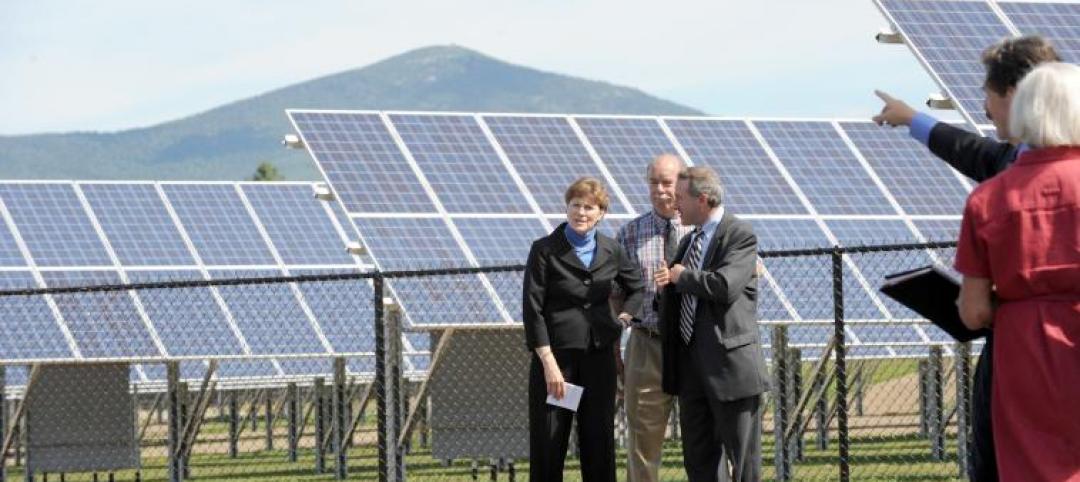The Inflation Reduction Act of 2022, recently passed by the U.S. Senate, sets aside over $5 billion for low carbon procurement in the built environment.
The policies in the bill aim to drive aggressive emissions reductions by 2030 within the building sector by incentivizing the use of low-carbon, clean materials for public infrastructure projects. Direct investments and tax credits will facilitate deep industrial decarbonization, with the potential to reduce over 200 million metric tons of carbon dioxide emissions annually by 2030.
Provisions in the bill include:
- $250 million for Environmental Product Declarations Assistance to support the development and standardization of EPDs for construction materials with grants and technical assistance to manufacturers.
- $100 million for Low-Embodied Carbon Labeling for Construction Materials to identify and label low-carbon materials and products for federally funded transportation and building projects.
- $2.15 billion for Use of Low-Carbon Buildings to specify and install low-embodied carbon materials and products for use in General Services Administration-owned buildings.
- $2 billion for Low-Carbon Transportation Grants that reimburse and incentivize the use of low-carbon materials and products for Federal Highway Administration projects.
- $4 billion for Improving Climate Resilience of Affordable Housing for funding to improve energy or water efficiency, indoor air quality and/or sustainability of projects, and implement low-carbon technologies, materials, and products to improve climate resiliency in affordable housing.
- FEMA Building Materials Program providing financial assistance for the use of low-carbon materials and incentives that encourage low-carbon and net-zero energy projects.
Related Stories
| Aug 19, 2013
Baltimore City Council committee OKs taxpayer assistance for $1.8 billion Harbor Point mixed-use project
A Baltimore City Council committee approved a plan to give millions in taxpayer assistance to the $1.8 billion Harbor Point development.
| Aug 8, 2013
Bipartisan bill would strengthen model building codes to boost energy efficiency
The Energy Savings and Industrial Competitiveness Act, a bipartisan U.S. Senate bill, would strengthen model building codes to make new homes and commercial buildings more energy efficient.
| Aug 2, 2013
Texas law expected to help reduce construction payroll fraud
Texas lawmakers want to get tough on construction companies that commit a certain form of payroll fraud, passing a new law recently signed by Gov. Rick Perry.
| Jul 26, 2013
AGC launches new coalition to help bring tax relief to construction sector
Associated General Contractor of America (AGC) has launched the Coalition for Fair Effective Tax Rates to bring tax relief to the construction sector.
| Jul 26, 2013
Legislation would revamp federal contracting policy impacting small design and construction firms
Legislation was introduced in the U.S. House of Representative this month to ban reverse auctions when an agency determines small businesses are qualified to bid on the solicitation.
| Jul 17, 2013
U.S. House continues to block enforcement of light bulb standards
The House of Representatives last week voted to block the enforcement of light bulb standards that many say would effectively force people to buy more expensive compact fluorescent bulbs.
| Jul 11, 2013
Bill to borrow more for college spending in Michigan criticized due to ‘higher-ed bubble’
An amendment to a Michigan appropriations budget authorizes an increase in state debt to pay for state university construction projects. But some experts see a “higher education bubble” on the horizon, and said more taxpayer debt for more buildings is a bad idea.
| Jul 11, 2013
Skanska exits U.S. Chamber of Commerce over LEED controversy
Skanska USA resigned from the U.S. Chamber of Commerce over the Chamber’s decision to support the American High-Performance Buildings Coalition.
| Jun 27, 2013
AGC urges Congress, Obama to reject caps on construction workers in immigration legislation
The unemployment rate in the construction sector in May was the lowest it has been in five years, which could signal a coming worker shortage, according to the Associated General Contractors of America.
| Jun 27, 2013
California legislators make push for prevailing wage law
California lawmakers introduced new legislation that would cut off state construction funds from charter cities that don’t mandate the equivalent of union-scale wages on public-works projects. Of the 482 cities in California, 121 are charter cities.
















